Metaphor: ReFantazio Assessment
Atlus continues to enhance its successful RPG formula for a compelling fantasy narrative.
What lessons do we gain from our beloved works of fiction? Do they only provide a way to escape reality and have fun, or can they also make a real difference in our lives? After trying out almost all RPGs made by Atlus, I can confidently say, “Yes,” in response to the final question. Metaphor: ReFantazio considers these questions using both tangible and theoretical approaches by using a politically charged fantasy RPG, demonstrating the impactful narratives that games can create. Despite its familiarity, there is also a new perspective present with a clear message and an empathy that spreads across its harsh environment. Metaphor sends a strong and clear message from its personal scenes to the dramatic actions in its primary plot, which is applicable to our current society and a timeless exploration of the positives and negatives of human nature.
With little ceremony, you are placed in the position of a young man in the unforgiving Kingdom of Euchronia. After the king was recently killed and his son, who you have a mysterious connection with, fell into a coma because of a curse, a magical election begins to determine the new ruler, with you among the contenders. The election process and your role within it shift and develop as the roughly 80-hour story progresses, but this structure provides the gripping narrative that drives you through a land filled with racism, inequality, poverty, religious extremism, and exploitation.
Contents
Review of ReFantazio using metaphor.
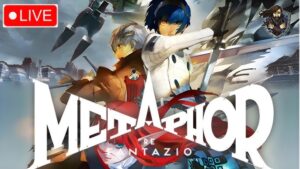
The themes in Metaphor are front and center, with its writing boldly showcasing its progressive politics without holding back. By building alliances, engaging with those facing similar challenges, and journeying far and wide to gain backing from various groups, the story consistently showcases a grasp of the forces behind an unpleasant world. Metaphor, a game, doesn’t focus on subtext, which actually works in its favor by clearly showcasing Atlus’ stance.
The connection between metaphor and the RPG roots of Shin Megami Tensei and Persona is unmistakable, anyone who claims otherwise is ignoring the truth. The Persona framework is highly efficient for delving into its themes and helping you develop significant relationships with the happenings and individuals on a basic level. Living life is like following a daily schedule – as time progresses and the approaching reign of a new ruler comes closer, deciding how to use your divided afternoons and evenings is just as important as focusing on the main goals that propel the significant events of the narrative. In this way, you must strike a balance between forming connections, navigating monster-filled dungeons, meeting the main quest’s deadlines, and squeezing it all into a limited timeframe. In comparison to other Atlus games, this one has less unnecessary content, maintaining a consistent pace that fits well with the storyline.
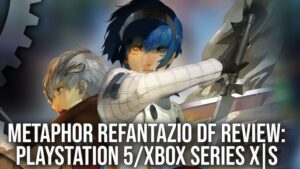
For instance, consider the Bond/Follower and the Royal Virtue systems, which are essentially improved versions of Persona’s social links and social stats. The process of ranking up has become more transparent due to clearer conditions for leveling up bonds and the explicit display of progress in virtue stats. It is a method that Metaphor uses to enhance the effectiveness and efficiency of already convincing systems. This encourages you to also consider its complete message, as you will interact with individuals from various backgrounds who have all been impacted by an unfair society in some way. And when it comes to a tale of earning the confidence and backing of individuals globally, there is a consistent theme in dedicating effort to assisting those who have been abandoned to suffer in their adversity.
Side missions also help to enhance the moments in between, leading you to different optional dungeons throughout the kingdom by either seeking bounties or assisting an NPC. These provide greater opportunities for battle with formidable foes scattered throughout these carefully crafted dungeons. Eventually, you start to understand the pattern of dungeon designs, which may become a bit monotonous, but it provides sufficient difficulty to engage with and complements the social elements of Metaphor effectively. You will also receive attractive rewards, such as money, better equipment, a large amount of XP for leveling up, or boosting your social standing.
What is your expectation for the duration of story-driven RPGs?

A seamless 20-30 hour period
More than 50 hours
Please do not exceed 70 hours.
I need 80 or more hours from you, darling!
Response
View Outcomes
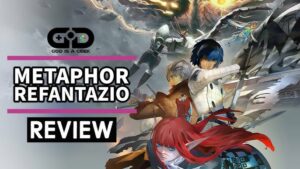
Due to the limited time available in the calendar system, you must carefully consider taking time away from your schedule to explore sidequests and dungeons, as it is not as easy as casually visiting Persona 5’s Momentos. It also contributes to the sense of a global journey promoted by the main plot, keeping you constantly travelling. Having your traveling band gather on a stylish steampunk-inspired ship called Gauntlet Runner, equipped with mechanical legs for traveling from one place to another, is a clever way to unite them. It serves as a central point to enhance specific connections, qualities, or battle abilities while traveling between different places. Metaphor excels in efficiency by always providing meaningful progression, ensuring that all its gameplay elements complement each other effectively.
A metaphor without tough turn-based combat would be incomplete. It mainly relies on the SMT press-turn system principles, which involve turn icons for both your party and enemies, and gaining extra actions by exploiting elemental weaknesses. Finding comfort in familiar systems is balanced by the thrill of Metaphor’s innovative changes. This is mainly because of Archetypes, an class-based Job system that offers enjoyable tools to fulfill various roles within your party of four. It provides a unique degree of adaptability not found in previous Atlus RPGs since every party member can focus on any of the Archetypes and transfer skills from other leveled-up characters – and the composition of your party is crucial.
As you progress to the later stages of the game, you will gain access to advanced Archetypes with innovative mechanics, particularly with the inclusion of Synthesis attacks. Each Archetype comes with its own set of moves, and combining different Archetypes in your party allows you to use Synthesis attacks that use multiple turn icons to unleash powerful spells for multi-hit attacks or gain strategic advantages with unique buffs. These Synthesis attacks may be crucial for overcoming challenging bosses.
Original: The quick brown fox jumps over the lazy dog.
Paraphrased: The fast brown fox leaps over the inactive dog.
Second
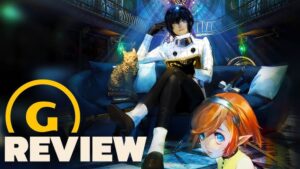
Archetypes, Synthesis assaults, and the interaction of elemental affinities incorporate well-established mechanisms that have been enhanced or amended to develop a new approach. Although Metaphor’s toughest challenges often involve strategic puzzles, it’s extremely satisfying when you can come up with a strategy to defeat unique or overpowering foes. Understanding and utilizing the system’s RPG progression tools can bring a sense of fulfillment without feeling like you are taking advantage of it.
Numerous enhancements help alleviate the monotonous grind that can occasionally be experienced in turn-based RPGs. Integrating a basic real-time action component adds variety, enabling you to hit an opponent early on to then have the upper hand when starting a fight. It is also effective at reducing the boredom of grinding through low-level enemies, as you can quickly defeat them without needing to participate in a turn-based fight. Metaphor generously provides items to level up Archetypes outside of combat, even giving rewards for using max-level Archetypes to strengthen your other choices. Metaphor is a clever advancement that simplifies the strongest elements of Atlus’ gameplay, including combat systems and social simulation mechanics.
Similar to its predecessors, Metaphor also has a remarkable sense of style. The bombastic gothic-inspired menus and UI elements clearly demonstrate the same ethos found in its world and character designs. Certainly, Atlus is exploring the fantasy genre in this instance, however, it maintains the unique style that is characteristic of the studio and not typically found in other games. It’s similar to animating the renowned artwork Garden of Earthly Delights by Bosch, but with a disturbingly twisted twist. Certain boss designs are directly influenced by that work, showcasing Metaphor’s creative grotesque style, which contrasts with the stunning landscapes and anime cutscenes that enhance key story points. While it might not wow with its technical prowess in each setting, the game advocates for the significance of art direction over sheer graphical power.
The distinctive, imaginative atmosphere is enhanced by the outstanding music of veteran Persona composer Shoji Meguro. It’s a richly orchestrated soundtrack featuring unconventional opera vocals that evoke a sense of importance when entering a new city or confronting an enemy group repeatedly. In contrast to his earlier creations, Metaphor leans more towards a traditional musical composition rather than being a collection of separate tracks on a record. It was definitely a change and it took a while to adjust, but soon I found myself waking up with the battle and town melodies playing in my mind, humming along as I played more. It may not be as emotionally impactful as Meguro’s other soundtracks, but it is still a powerful and important one.
Metaphor possesses the message, gameplay, style, and music, along with the heart that unites all these fundamental aspects harmoniously. I value the message about overcoming our situations and the importance of working together to help those in need. However, it possesses the means to demonstrate that achieving that goal is not straightforward or simple either. An instance of this is the empathetic perspective on belief systems overall, which suggests that although religion can be manipulated by truly malicious individuals, it should not be confused with faith itself being the issue – while also recognizing that faith alone is not enough to support a fair society. There is a recurring theme about powerful individuals exploiting the fears and worries of the public, and its electoral plot delves into the clear manipulative tactics of tyrannical leaders.
I was surprised by the unique approach Metaphor takes in contrast to other RPGs from the beginning, as you are asked to name yourself first before delving into the story of a forbidden book leading the protagonist on a journey. Continuously intrigued by how it would break the fourth wall, I began to vaguely refer to this utopia as an idealized mirror image of our actual modern society. However, for the characters in Metaphor, this is the dream they are working towards.
Indeed, Metaphor’s writing may occasionally repeat itself or use cliches, as it tends to circle back on itself and favor straightforward language. Embedded in that is a series of poignant, lyrical phrases that indicate the narrative is familiar with the subject matter it is addressing. Metaphor can be somewhat idealistic, while also acknowledging the limits of idealism. The optimistic moments are justified by a group of characters who actively strive to combat injustices in their realm.
Despite the grandeur of its storyline, it is remarkable that the game still allows for the development of camaraderie among one of the most exceptional RPG casts in recent years. It’s a diverse gathering, each person with a distinct goal fueled by tragedy, optimism, and a strong sense of duty. The party of metaphors showcases how diversity is a fundamental strength of humanity that is always present. In 2024, it is comforting to see a strong narrative boldly proclaiming and showcasing its beliefs without hesitation.
Despite the abundance of impactful game stories this year, such as Like A Dragon: Infinite Wealth, Persona 3 Reload with its DLC, Final Fantasy VII Rebirth, 1000xResist, and Final Fantasy XIV: Dawntrail, which I have all reviewed, Metaphor continues to hold a unique spot in my affections. It not only echoes at certain times, but also acts as a cue that there is a larger world beyond, which we can positively impact regardless of the perceived insignificance of our actions. I hope that others who take its message to heart will also resonate with its main thesis about what fiction can do for our reality.
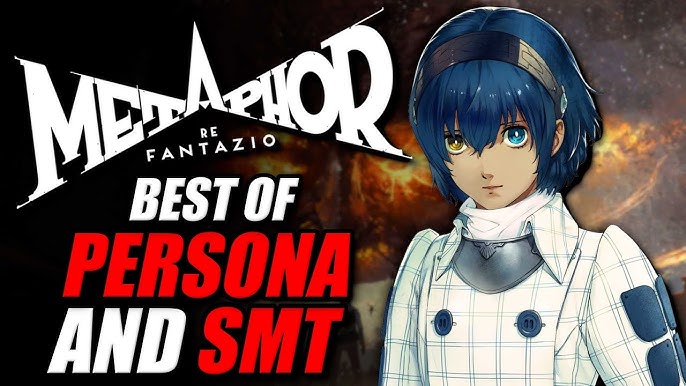
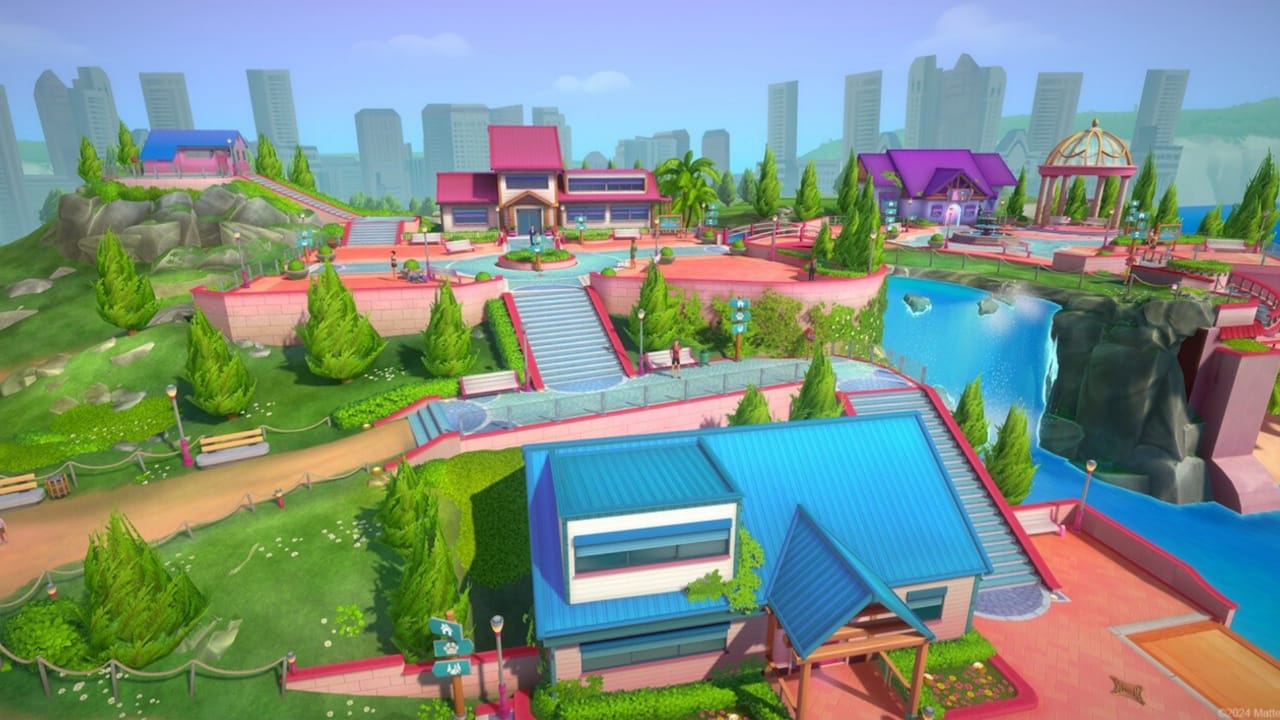

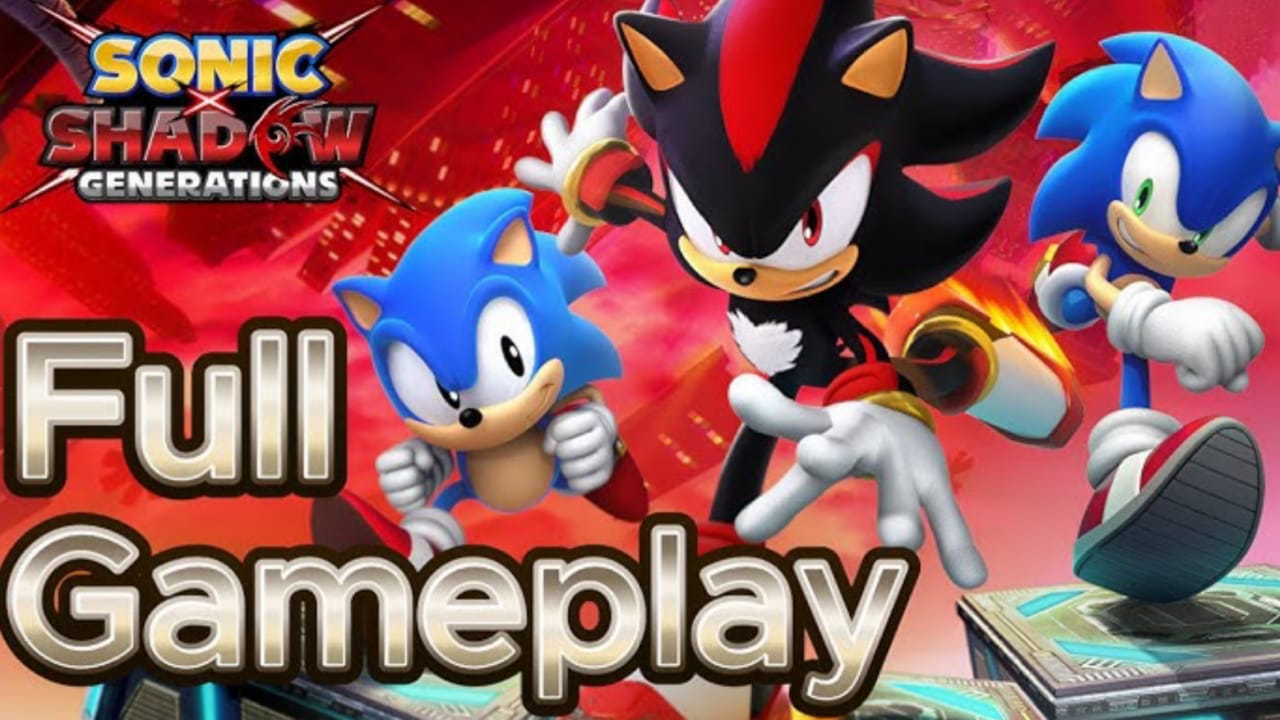
Post Comment